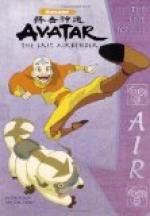CHAPTER VIII
THE WALRUS HUNT
Meanwhile, on the ice-locked shores of Great Bear Lake, preparations for departure were being made by the airplane party. The gasoline must all be strained through a chamois-skin to insure them against water in the engines, and this, with the temperature at thirty to forty below, was no mean task. There was a careful selection of foodstuffs to be taken along. It was decided also that the five dogs should go, for they would provide transportation, in case of accident, and could be killed and eaten as a last resort. The entire equipment was given a thorough overhauling. All this took three days of arduous toil.
When, at last, all was in readiness, and the earth began to drop away beneath them, the dogs put their noses in the air and chorused a canine Arctic dirge. But their howls were lost in the noise of the engines.
As for the boys, their cheeks burned. Truly, this was to be their greatest adventure—“An adventure quite worthy the heart of a true soldier,” as the Major had expressed it. Many problems they left behind unsolved, but these were quite crowded out of their minds by the one supreme problem: Would they reach the Pole, and would they reach it first?
Somewhere on the shores of Melville Bay, near the banks of Melville Island, frozen in the ice for the winter, was the little gasoline schooner which had engaged to furnish them fuel for the last lap of the journey north and the return. The gas would cost a pretty penny, to be sure, for it would compel the trader to return to Nome earlier than he had intended doing, but money seemed no object to the zealous explorer.
Setting their course a little east of north, they shot directly away. Bruce, who was driving, settled back easily in his place. The machine was soaring beautifully. The engines worked in perfect time. Everything promised a safe and speedy trip. Now and again a belated flock of snow-geese, as if drawn by an invisible thread, shot by them; and now, far below, they caught sight of moving brown specks, which told of caribou still passing southward from the summer pasture in the unexplored lands far to the North. The fleeting panorama was of constantly changing interest and beauty.
Soon they left the land behind. They were passing over Prince Albert Sound. Its surface was already white with ice. Land again, then Melville Sound—last lap on this three hundred mile journey. Bruce found himself unable to believe they were over a great body of salt water. Surely these squares, rising from the surface, white and glistening in the moonlight, were village roofs covered with snow. Surely, these other squares lying flat upon the surface were town lots, and the broader ones stretches of field and meadow, where grain would ripen in summer and flowers bloom. And the spots of open water, made black by the whiteness about them, were fishing-ponds where one might lazily dip his line and dream.




